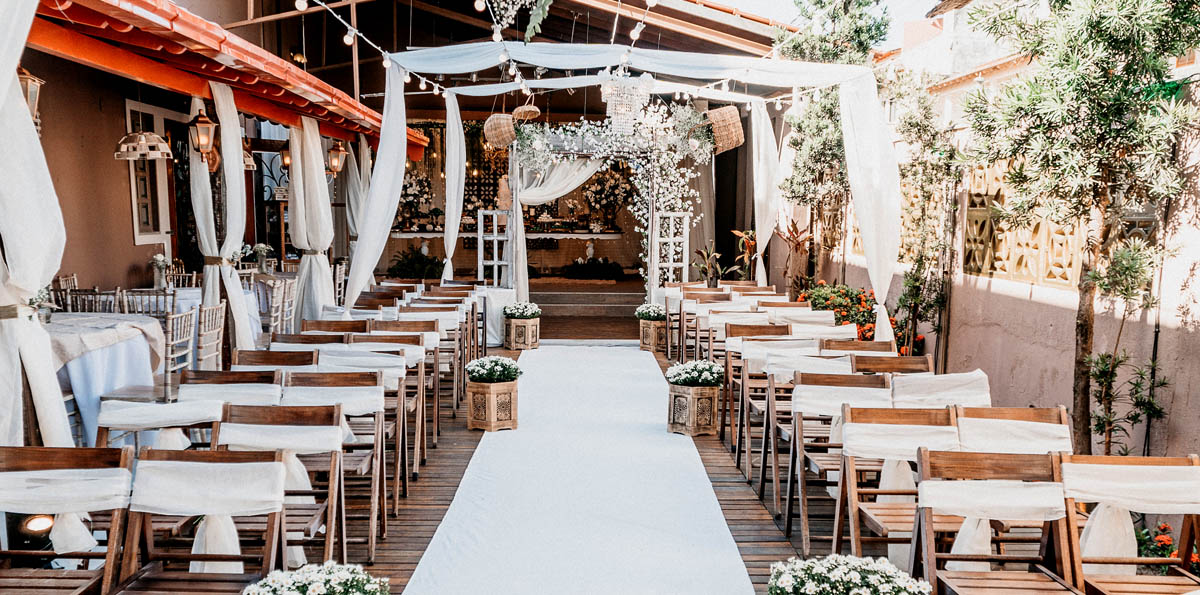Most couples are so focused on planning the perfect wedding that they forget about making the ceremony and reception accessible. A wedding should be disability-friendly and accessible for the guests. If you’re not sure where to start, here are 6 tips for making your wedding more accessible.
Ask Guests about Special Accommodations on the Invitation
As well as asking people about their dietary needs on your RSVP cards, ask your wedding guests about any special accommodations they might need. Alternatively, you can ask a guest in person to show them that you care. Ask your guests what you can do to make your day more comfortable and accessible for them.
You may need to make adjustments on your wedding day to accommodate their needs, such as inviting someone’s caregiver or having ushers guide vision impaired guests to their seats. Remember that not all disabilities are visible, so try to be sensitive to each person’s needs.
Choose an Accessibility-Friendly Location
Before putting a deposit down on a venue, make sure that it is an accessibility-friendly location. Ask to have a private viewing of the venue so you can check that doorways, elevators, and bathrooms are wide enough for wheelchair access. You should ask the venue staff about lighting options, so that your guests can see more clearly at the reception, and ask if they have their own sound system and microphones, so that everyone can hear the speeches clearly. You should also ask if the venue allows guide dogs and emotional support animals. The venue you choose should have parking available close to the building for those with limited mobility.
Wheelchair Access
As previously mentioned, your wedding venue should be able to accommodate wheelchairs. If the venue is accessed by stairs, ask if it would be possible to put up temporary ramps. You should make sure that all pathways and doorways are clear. Ask you venue if they can make space for wheelchair users at the ceremony, so they can sit with the other guests. If you plan on having your wedding outdoors, you should ask the venue if you can put down temporary outdoor event flooring to make it easier for wheelchair users to move around on the grass.
Choose Seating Wisely
Having more space between tables makes it easier for those who are vision impaired or who have a physical disability to get around. You should also consider having fewer people seated at some tables to make more space. Carefully consider your seating chart so that everyone is seated in a convenient and accessible seat. Add seating near the dancefloor so people can rest, but still participate in the fun. If the tables need to be moved to make room for the dancefloor, make sure there are chairs around the edges of the room so people can still sit down. If you’re going to have a cocktail hour, make sure there are plenty of seating options too.
Food and Drink
Talk to potential caterers about whether they can accommodate your guests’ dietary needs. Some people may have allergies or intolerances, some people may follow a vegan or vegetarian diet, and others may have a restricted diet for health or medical reasons. If someone has a serious allergy to a specific ingredient, then you can ask your caterer to prepare their food separately or to leave that ingredient out of your wedding menu altogether. A buffet or multiple food stations may appeal to you, but a sit-down meal will limit your guests’ need to get up move across the room to get more food.
Make sure that your caterer or drinks supplier has a wide variety of non-alcoholic drinks available and request that alcoholic drinks aren’t served to guests those who can’t drink.
Accommodation
Some of your guests may not be up to travelling home after a long day of festivities, so you may want to choose a venue such as a hotel that will have enough rooms for your guests or book some rooms at a nearby B&B. The accommodation you choose should be fully accessible and easy to get to if an anxious guest needs some quiet time, if they need to rest between the ceremony and reception, or if someone wants to go to bed early. If the hotel is a little further from the venue, you should provide transportation from the wedding venue to the hotel.
Having wedding insurance and making sure your wedding is accessible for all your guests will give you peace of mind that all your guests will have a good time on your special day. Make sure you make accessibility a top priority when you begin planning your wedding, so it doesn’t become a hassle later on.


